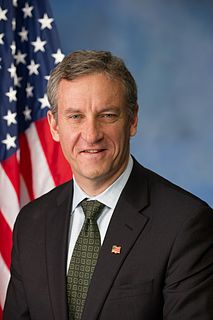A Quote by Eliot Spitzer
Power must be used, but it must be tempered by soul-searching and the recognition of our human capacity for error. That is the maxim that should inform our approach to every challenge, from reforming state government to engaging in foreign affairs.
Related Quotes
In knowledge of human affairs, we should never allow our minds to be enslaved by others by subjecting ourselves to their whims. We must maintain freedom of thought, and never accept anything of purely human authority into our heads. When we are presented with a diversity of opinions, we must choose, if we can; if we cannot, we must remain in doubt.
If the German nation wants to end a state of affairs that threatens its extermination in Europe, it must not fall into the error of the pre-War period and make enemies of God and the world; it must recognize the most dangerous enemy and strike at him with all its concentrated power. And if this victory is obtained through sacrifices elsewhere, the coming generations of our people will not condemn us.
Some things the legislator must find ready to his hand in a state, others he must provide. And therefore we can only say: May our state be constituted in such a manner as to be blessed with the goods of which fortune disposes (for we acknowledge her power): whereas virtue and goodness in the state are not a matter of chance but the result of knowledge and purpose. A city can be virtuous only when the citizens who have a share in the government are virtuous, and in our state all the citizens share in the government.
To discover how much of our resources must be mobilized for war, we must first examine our political aim and that of the enemy. We must gauge the strength and situation of the opposite state. We must gauge the character and abilities of its government and people and do the same in regard to our own. Finally, we must evaluate the political sympathies of other states and the effect the war may have on them.
It is not coincidence that makes a designer but his continuity. And continuity means working and searching, working and fighting, working and finding, finding and seeing, seeing and communicating, and again working and searching. Designers must challenge the past, must challenge the present, must challenge the future; but first of all, designers must be true to themselves. Design is attitude.
Prayer, the basic exercise of the spirit, must be actively practiced in our private lives. The neglected soul of the human being must be made strong enough to assert itself once more. For if the power of prayer is again released and used in the lives of common men and women; if the spirit declares its aims clearly and boldly, there is yet hope that our prayers for a better world will be answered.
We insist on producing a farm surplus, but think the government should find a profitable market for it. We overindulge in speculation, but ask the government to prevent panics. Now the only way to hold the government entirely responsible for conditions is to give up our liberty for a dictatorship. If we continue the more reasonable practice of managing our own affairs we must bear the burdens of our own mistakes. A free people cannot shift their responsibility for them to the government. Self-government means self-reliance.
If our free society is to endure, those who govern must recognize human dignity and accept the enforcement of constitutional limitations on their power conceived by the Framers . . . . Such recognition will not come from a technical understanding of the organs of government, or the new forms of wealth they administer. It requires something different, something deeper-a personal confrontation with the wellsprings of our society.
Our children should learn the general framework of their government and then they should know where they come in contact with the government, where it touches their daily lives and where their influence is exerted on the government. It must not be a distant thing, someone else's business, but they must see how every cog in the wheel of a democracy is important and bears its share of responsibility for the smooth running of the entire machine.
A Russian should rejoice if Poland, the Baltic Provinces, Finland, Armenia, should be separated, freed from Russia; so with an Englishman in regard to Ireland, India and other possessions; and each should help to do this, because the greater the state, the more wrong and cruel is its patriotism, and the greater is the sum of suffering upon which its power is founded. Therefore, if we really wish to be what we profess to be, we must not only cease our present desire for the growth of the state, but we must desire its decrease, its weakening, and help this forward with all our might.
With a full century of contrary proof in our possession and despite our demonstrated capacity for cooperative teamwork, some among us seem to accept the shibboleth of an unbridgeable gap between those who hire and those who are employed. We miserably fail to challenge the lie that what is good for management is necessarily bad for labor; that for one side to profit, the other must be depressed. Such distorted doctrine is false and foreign to the American scene where common ideals and purpose permit us a common approach toward the common good.
Even in this place one can survive, and therefore one must want to survive, to tell the story, to bear witness; and that to survive we must force ourselves to save at least the skeleton, the scaffolding, the form of civilization. We are slaves, deprived of every right, exposed to every insult, condemned to certain death, but we still possess one power, and we must defend it with all our strength for it is the last — the power to refuse our consent.




































